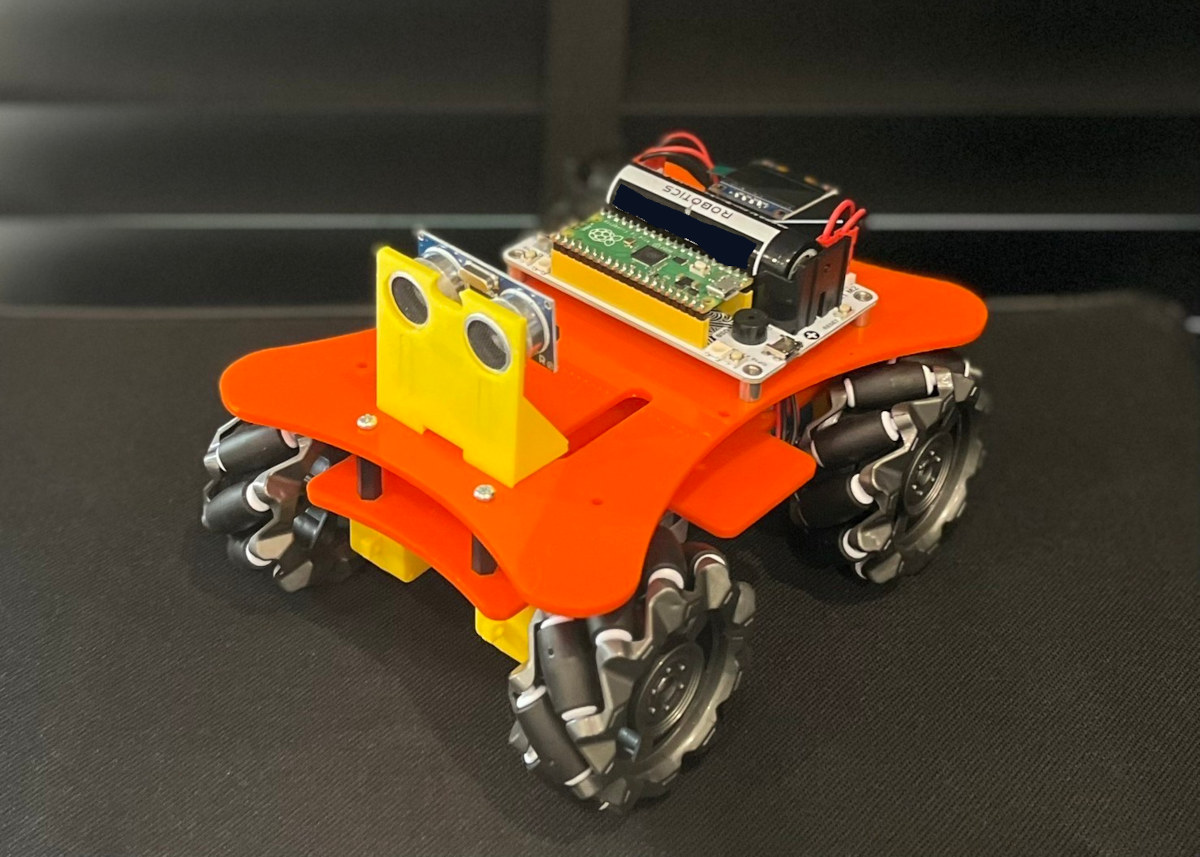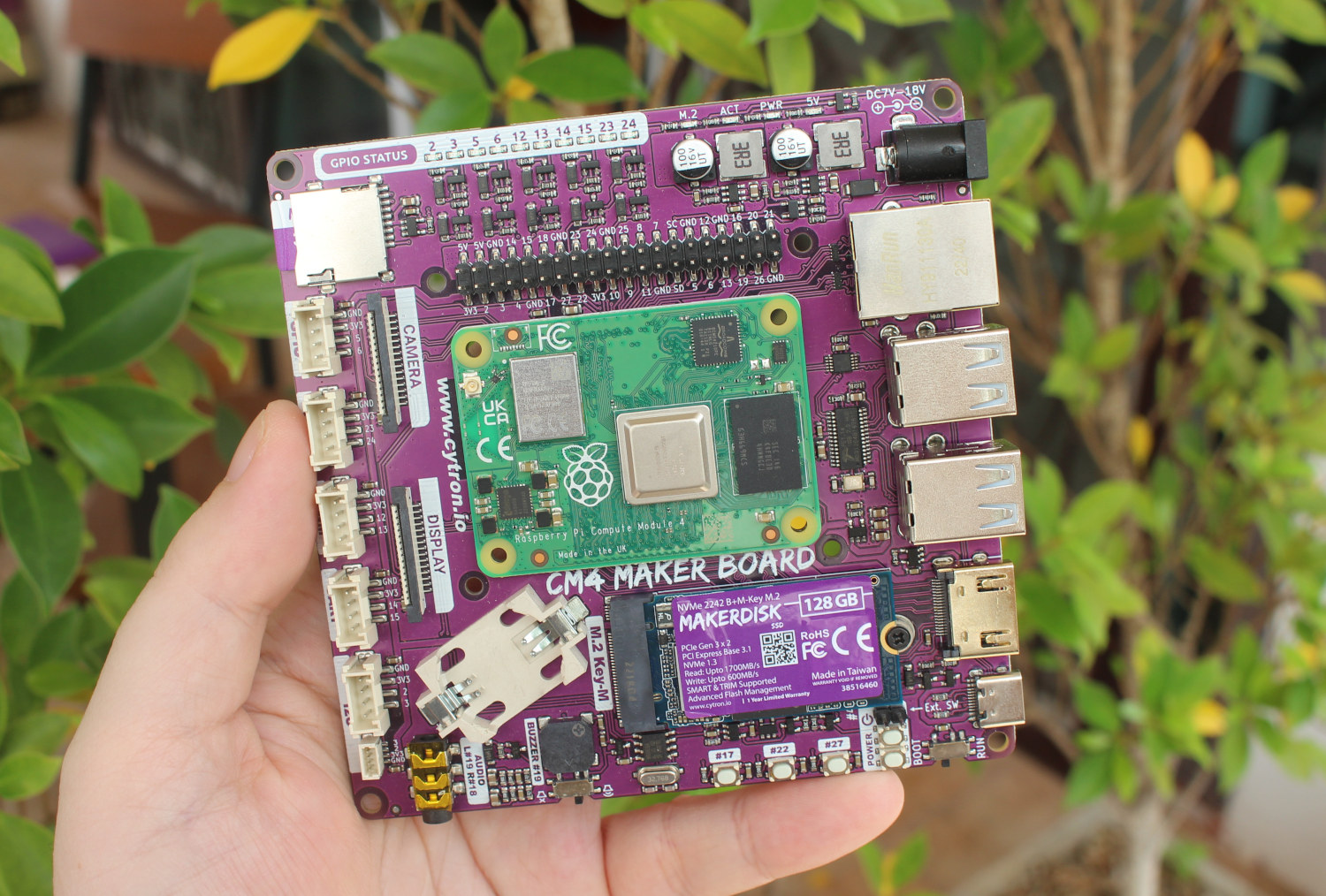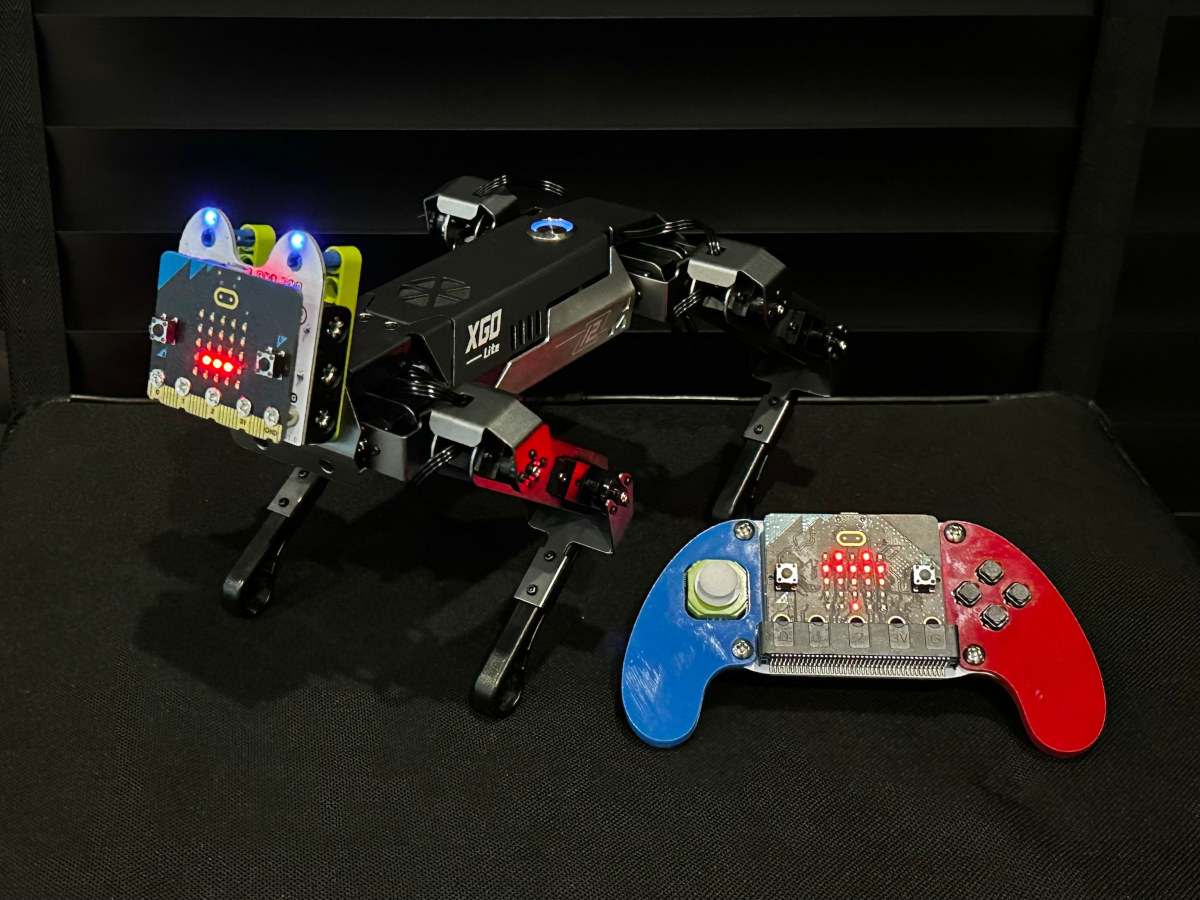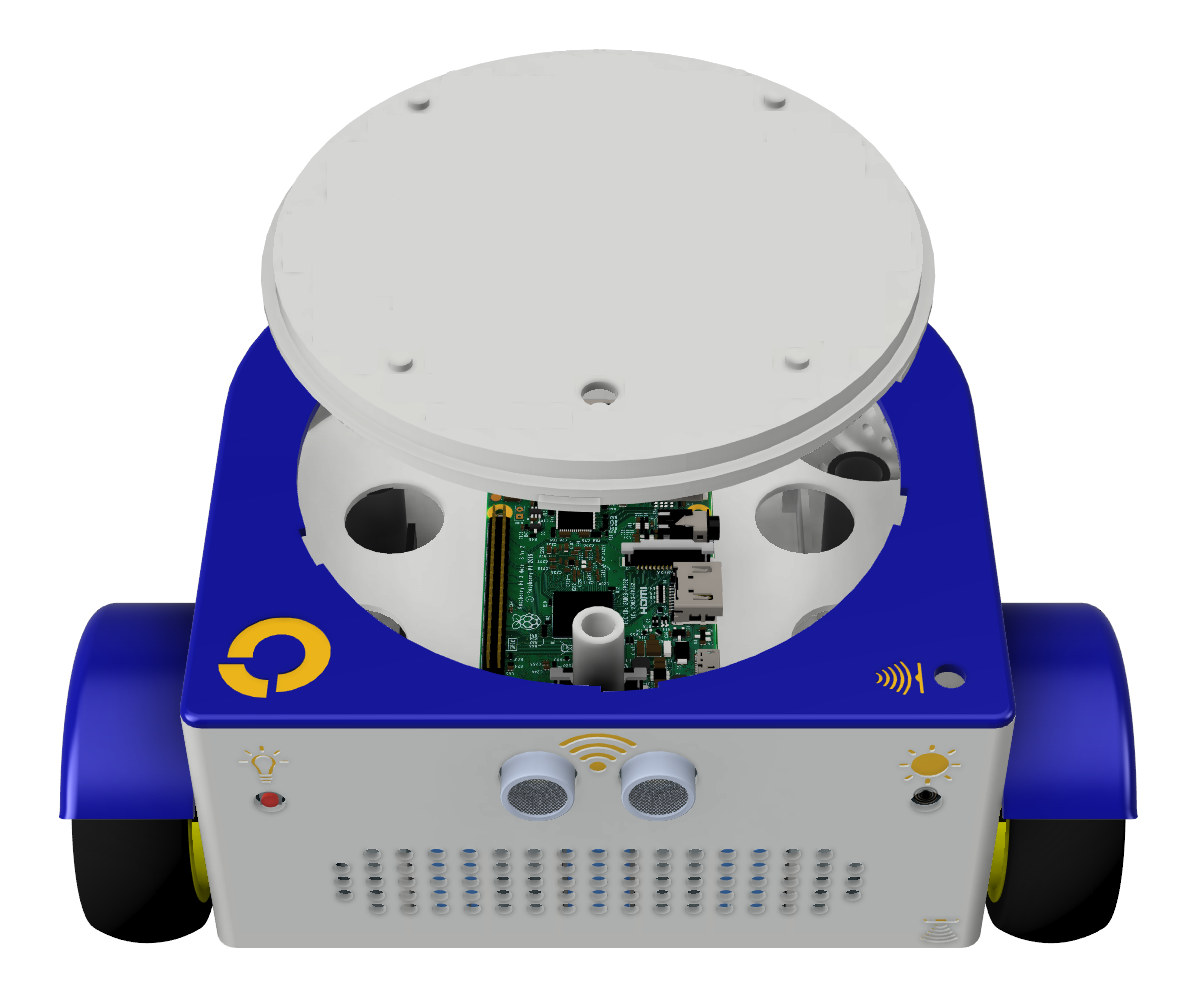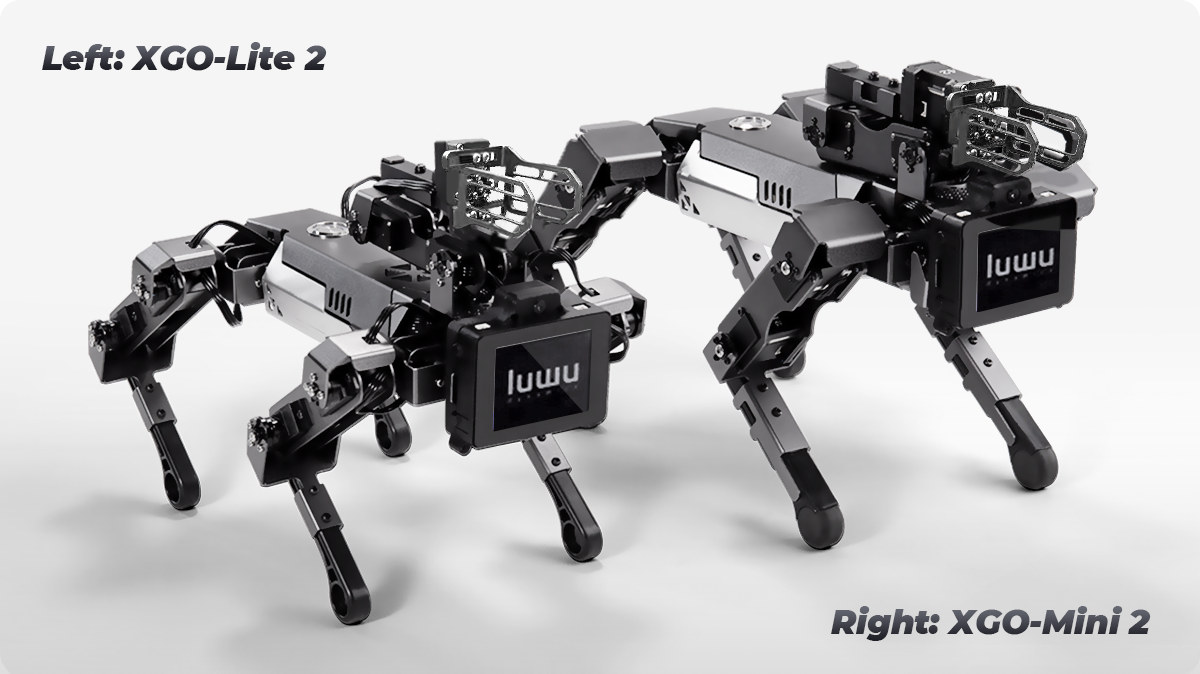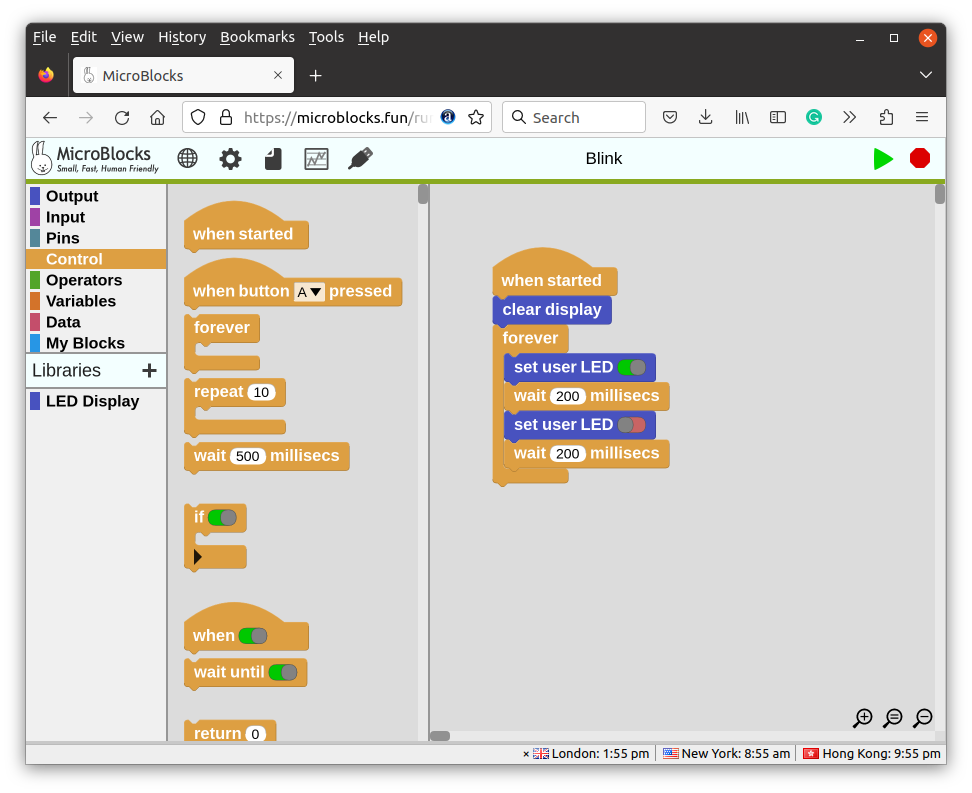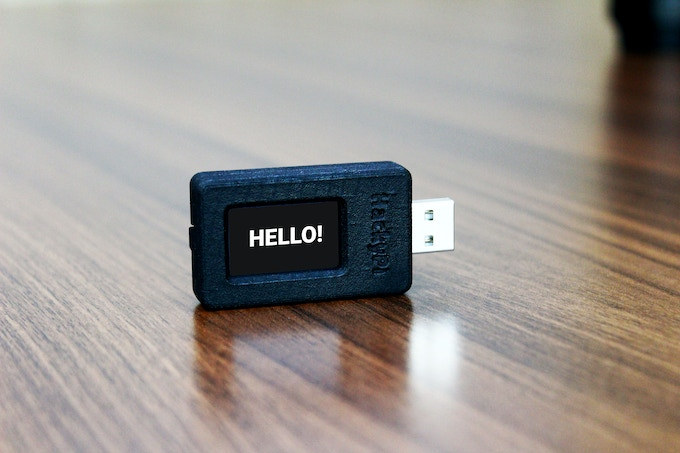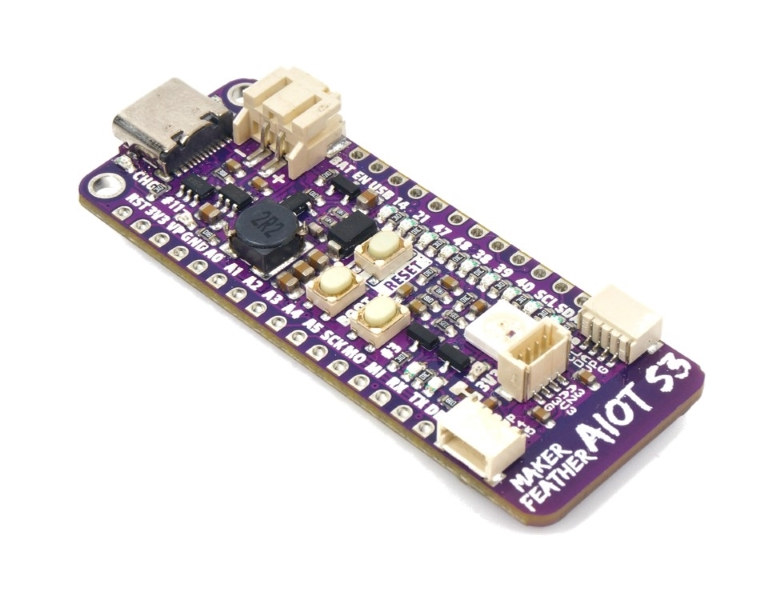ELECFREAKS Wukong 2040 is a multifunctional breakout board designed for Raspberry Pi Pico. It is equipped with interfaces for four DC motors, up to twelve servos, a buzzer, A\B buttons, RGB “rainbow” lights, a Reset button, etc… The board can be powered by a single 18650 3.7V LiPo battery and integrates a power management IC that monitors the battery level and can also charge the battery via a USB charger. Battery life is typically 60 minutes per charge but can last over 120 minutes depending on the load. Wukong 2040 key features and specifications Description of the Wukong 2040 interfaces Specifications and dimensions of the Wukong 2040 Expansion Board for Raspberry Pi Pico The Wukong 2040 breakout board for the Raspberry Pi Pico can control up to four DC motors and up to 12 servo motors as shown in the diagram below. Pinout diagram of the Wukong 2040 board […]
CM4 Maker Board review – Part 1: specifications, unboxing, and first boot
Cytron CM4 Maker Board is a carrier board for the Raspberry Pi CM4 or CM4 Lite system-on-module with plenty of I/Os, support for one M.2 NVMe SSD, and RTC backup battery, a buzzer, and various LEDs for GPIO status that makes the board especially well suited for the education market and prototyping. The carrier board also comes with the usual Gigabit Ethernet and full-size HDMI port, four USB 2.0 ports, five Grove connectors, one Maker port, the omnipresent 40-pin Raspberry Pi GPIO header, and support power input from 7V-18V DC jack or 5V via a USB Type-C connector. CM4 Maker Board specifications Cytron CM4 Maker Board specifications: Supported SoM – Raspberry Pi Compute Module 4 or Compute Module 4 Lite Storage microSD card slot M.2 PCIe 2.0 socket for NVMe 2232/2242 SSD Video Interfaces Full-size HDMI 2.0 port MIPI DSI display connector Camera – MIPI CSI connector connector Audio – […]
Review of micro:bit XGO Robot Kit – An educational robot dog with a Bluetooth joystick
ELECFREAKS micro:bit XGO Robot Kit is a robotic dog designed for robotics education. It moves realistically and acts like a real pet dog, and can help teach various technology concepts related to mechanical engineering, electronics, programming, and artificial intelligence (AI). The kit support both the BBC Micro:bit V1 and V2 boards which can be programmed with Microsoft MakeCode, Python, the Arduino IDE, and other languages. The XGO robot is compact and can be easily used on a desk or table. The robot is made of aluminum metal coated with a beautiful anodized finish. Each leg has 12 high-quality digital servos moving each joint, 3 on each side, totaling 12, helping the robot dog to move smoothly and flexibly. The robot can be controlled with apps, a joystick, and up to 19 ready-made postures, such as holding hands, looking for food, sitting down, squatting, etc… Content of the XGO robot kit: […]
FOSSBot open design 3D printed educational robot is made with Raspberry Pi and off-the-shelf parts
FOSSBot is an “open design” 3D printed educational robot comprised of a Raspberry Pi SBC and various off-the-shelf modules, as well as open-source software that can be used for education purposes. The FOSSBot DIY robot has been developed by the Harokopio University of Athens and the Greek Free and Open Source Software (GFOSS) community, and builds upon the “GSOC 2019 – A DIY robot kit for educators” with the main goal being to have a platform to “familiarize teachers with modern education models based on the S.T.E.A.M approach. (Science, Technology, Engineering, Arts, Mathematics)”. FOSSbot key components: SBC – Raspberry Pi Zero W, Raspberry Pi 3, or Raspberry Pi 4. Mechanically and electrically compatible Raspberry Pi alternatives could be an option too although part of the software would have to be modified Storage – 32GB MicroSD card Expansion board – Adafruit Perma-Proto HAT for Pi – No EEPROM to connect sensors […]
XGO 2 – A Raspberry Pi CM4 based robot dog with an arm (Crowdfunding)
XGO 2 is a desktop robot dog using the Raspberry Pi CM4 as its brain, the ESP32 as the motor controller for the four legs and an additional robotic arm that allows the quadruped robot to grab objects. An evolution of the XGO mini robot dog with a Kendryte K210 RISC-V AI processor, the XGO 2 robot offers 12 degrees of freedom and the more powerful Raspberry CM4 model enables faster AI edge computing applications, as well as features such as omnidirectional movement, six-dimensional posture control, posture stability, and multiple motion gaits. The XGO 2 robot dog is offered in two variants – the XGO-Lite 2 and the XGO-Mini 2 – with the following key features and specifications: The company also says the new robot can provide feedback on its own postures thanks to its 6-axis IMU and sensors for the joints reporting the position and electric current. A display […]
MicroBlocks is a visual programming IDE for 32-bit microcontrollers
MicroBlocks is a visual programming IDE for 32-bit microcontrollers currently supporting the BBC Micro:bit V1/V2, Calliope mini (aka the German Micro:bit), Adafruit Circuit Playground Express and Bluefruit, Raspberry Pi Pico and Pico W, and various other boards including ESP32 and ESP8266-based boards. I discovered MicroBlocks in the list of talks for FOSDEM 2023, and although it did not make it to my virtual schedule, I thought it was interesting to look into and write about it. In their upcoming FOSDEM talk, Bernat Romagosa and Kathy Giori refer to MicroBlocks as small, fast, and human-friendly with development guided by four guiding principles: liveness, parallelism, portability, and autonomy. The IDE is inspired by Scratch, and as such, looks very similar to other visual programming interfaces I have used over the years. You can launch MicroBlocks from Google Chrome or Microsoft Edge on a PC (not a mobile device) without having to install […]
HackyPi Raspberry Pi RP2040 USB dongle serves as an educational “hacking” tool (Crowdfunding)
SB Components’ HackyPi is a Raspberry Pi RP2040-based USB dongle whose main purpose is to teach ethical hacking and coding programs, in other words, some sort of portable educational hacking tool. The small USB stick features a 1.14-inch color LCD, a MicroSD card to store data such as scripts and photos, and a button to enable programming like on other Raspberry Pi RP2040 boards. HackyPi specifications: MCU – Raspberry Pi RP2040 dual-core Cortex-M0+ microcontroller @ 133 MHz with 264KB SRAM Storage – QSPI flash, MicroSD card slot Display – 1.14-inch color LCD with 240 x 135 resolution USB – 1x USB 1.1 Type-A port Misc – Boot “Initiate Program” button Power Supply – 5V via USB port Dimensions – 55.04 x 23.20mm SB Components says the HackyPi USB dongle can be programmed with Raspberry Pi Pico C/C++ and MicroPython SDKs as well as CircuitPython, and they will release hardware design […]
Maker Feather AIoT S3 – An ESP32-S3 board programmable with CircuitPython or Arduino
Cytron Maker Feather AIoT S3 is an ESP32-S3 board compatible with the Adafruit Feather form factor and suitable for makers and STEM education with features like LEDs for GPIOs, a buzzer, expansion headers and connectors, and support for CircuitPython & Arduino. The WiFi and Bluetooth LE IoT board also supports LiPo and Li-Ion batteries, includes a USB Type-C port for power/charging and programming, and a few buttons. It’s suitable for machine learning thanks to the vector extensions found in the ESP32-S3 microcontroller. Maker Feather AIoT S3 specifications: Wireless module – Espressif ESP32-S3-WROOM-1-N8R8 module with ESP32-S3 dual-core LX7 microprocessor @ up to 240 MHz with Vector extension for machine learning, 8MB FLASH, 8MB PSRAM, WiFi 4 and Bluetooth 5 LE/Mesh USB – 1x USB Type-C port power and programming Expansion 2x GPIO headers compatible with Adafruit Feather form factor and FeatherWing add-on boards 3x Maker Ports compatible with Qwiic, STEMMA QT, […]


